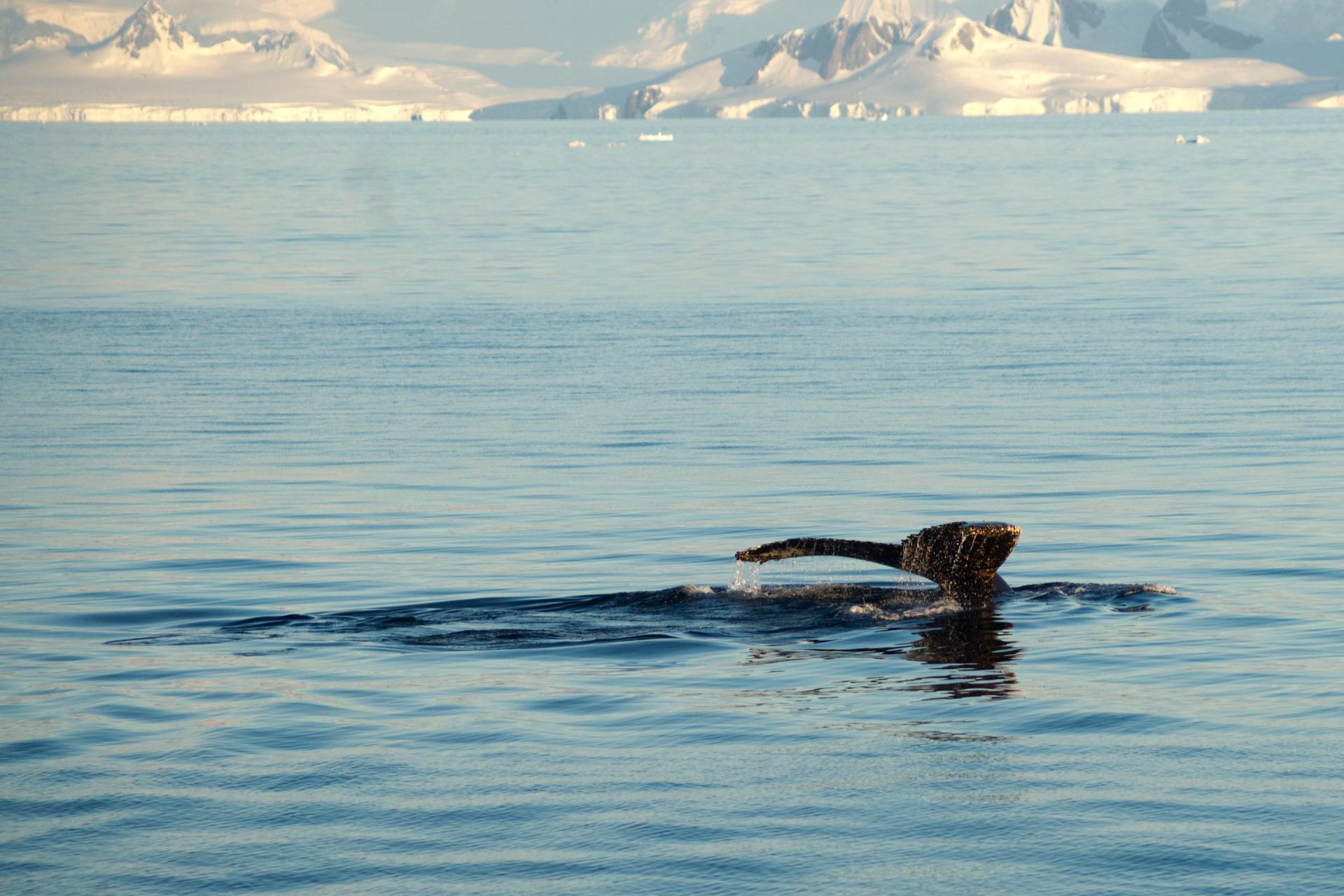World's Largest Marine Reserve Proposal Blocked by Three Nations
The Commission for the Conservation of Antarctic Marine Living Resources (CCAMLR) recently held a meeting in Hobart, Tasmania, where twenty-two member states including the U.K., U.S., and the EU voted in favour of the creation of the world's largest marine reserve in Antarctica, while China, Norway and Russia rejected the proposal, which needed unanimous support from all members to go through.
A proposal at the Commission of the Conservation of Antarctic Marine Living Resources (CCAMLR)
meeting in Tasmania has been rejected by three out of twenty-five member states that voted not to support the proposed marine sanctuary.
The majority vote was in favour, and supporting countries included the U.S, U.K and the E.U. China, Norway and Russia opposed the creation of the world's largest marine protected area in Antarctic waters denying a number of species protection; including blue whales
( Balaenoptera musculus)
, the humpback whale
( Balaenoptera novaeangliae)
, the killer whale
( Orcinus orca
), the leopard seal
( Hydrurga leptonyx
) and a number of species of penguin, including Adelie
( Pygoscelis adeliae
), chinstrap
( Pygoscelis antarcticus) ,
emperor
(Aptenodytes forseti),
gentoo
(Pygoscelis papua),
king
(Aptenodytes patagonicus),
macaroni
(Eudyptes chrysolophus),
southern rockhopper
(Eudyptes chryosocome),
and northern rockhopper penguin
(E. moseleyi).
The proposed marine reserve would have stretched 1.8 million kilometers squared protecting Antarctic ocean ice shelves and waters which are home to rich and biodiverse ecosystems that give the region it's global significance.
Since the 19th Century and the European discovery of Antarctica which opened it up for scientific exploration, human interference in these one pristine waters has led to unregulated seal and whale hunting. excessive Antarctic krill fishing, military activity, and various national claims over territory. In 1959, the Antarctic Treaty was the basis for international cooperation, when twelve nations agreed to designate the area to the south of the 60th parallel as a scientific preserve for the conservation and study of it's diverse and unique ecosystems. In 1982, the CCAMLR formed as a 25 member inter-governmental organisation that includes the EU and it's member states. using cutting edge research lead by it's scientific committee, CCAMLR implements comprehensive conservation protection and fisheries management.
Following an ecosystem approach to fisheries management, Antarctic fisheries are managed focusing on sustainability, aiming to protect fish stocks through harvesting targeted species, such as Antarctic toothfish, krill or mackerel, and icefish. this approach is to further support the development of Marine Protected Areas (MPAs) for critical habitats for endangered and endemic species. East Antarctica for example, contains some of the most diverse ecosystems on Earth, with regions of open ocean and seabed diversity that provide important habitats for marine mammals, penguins and seabirds, as well as nursery and spawning grounds for key fish species.
The proposed MPA in Antarctic waters would have protected important areas in the Weddell Sea and surrounding Antarctic peninsula, banning over-exploitation and fishin of krill, so it is to no surprise that the three nations China, Norway and Russia opposed the plan due to their heavily vested interests in such large-scale commercial fishing. This would have also helped in the face of impending climate change, as the seas of Antarctica are a huge carbon sink, soaking large amounts of CO2 from the atmosphere.
The failure to protect some of the Earth's most important ecosystems comes at a time when there is mounting evidence that humans are devastating wild ecosystems and animals. Just this week, scientists announced that humans have caused the extinction of 60% of wild animal populationssince 1970, with potentially drastic consequences for the future of the human race.
The U.K. recently urged the U.N. to protect 30% of the world's oceans by 2030, increasing the current target of 10% by 2020.
© Ocean Research & Conservation Ireland (ORCireland) and www.orcireland.ie , est. 2017. Unauthorized use and/or duplication of this material without express and written permission from this site’s author and/or owner is strictly prohibited. Excerpts and links may be used, provided that full and clear credit is given to Ocean Research & Conservation Ireland and www.orcireland.ie with appropriate and specific direction to the original content.
SHARE THIS ARTICLE















